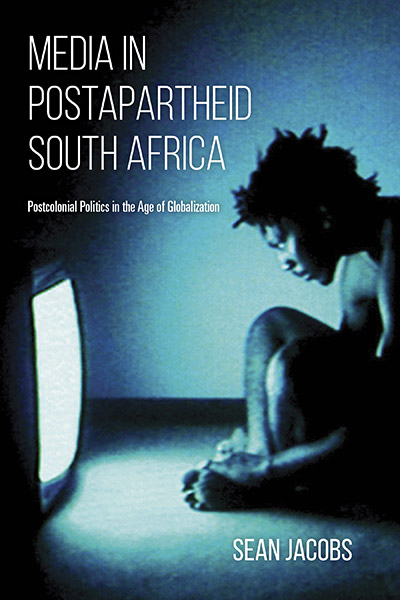+ info: Indiana University Press
Sean Jacobs proposes a new agenda for the study of culture in contemporary South Africa by focusing on media infrastructures that condition, select, and edit the sorts of information that are available. Jacobs’s work will be read for its revelations about the nature of citizenship and public engagement in our media saturated age.
— Daniel R. Magaziner, author of The Law and the Prophets: Black Consciousness in South Africa, 1968–1977
Sean Jacobs takes a unique approach to tell a comprehensive story of postapartheid South Africa and African society. Media consolidates and enacts the victory of a particular image of what South Africa ought to be. This is an incredibly powerful story, which is much bigger than media, but to which media gives us access.
— Herman Wasserman, author of Tabloid Journalism in South Africa
In Media in Postapartheid South Africa, author Sean Jacobs turns to media politics and the consumption of media as a way to understand recent political developments in South Africa and their relations with the African continent and the world. Jacobs looks at how mass media defines the physical and human geography of the society and what it means for comprehending changing notions of citizenship in postapartheid South Africa. Jacobs claims that the media have unprecedented control over the distribution of public goods, rights claims, and South Africa’s integration into the global political economy in ways that were impossible under the state-controlled media that dominated the apartheid years. Jacobs takes a probing look at television commercials and the representation of South Africans, reality television shows and South African continental expansion, soap operas and postapartheid identity politics, and the internet as a space for reassertions and reconfigurations of identity. As South Africa becomes more integrated into the global economy, Jacobs argues that local media have more weight in shaping how consumers view these products in unexpected and consequential ways.



